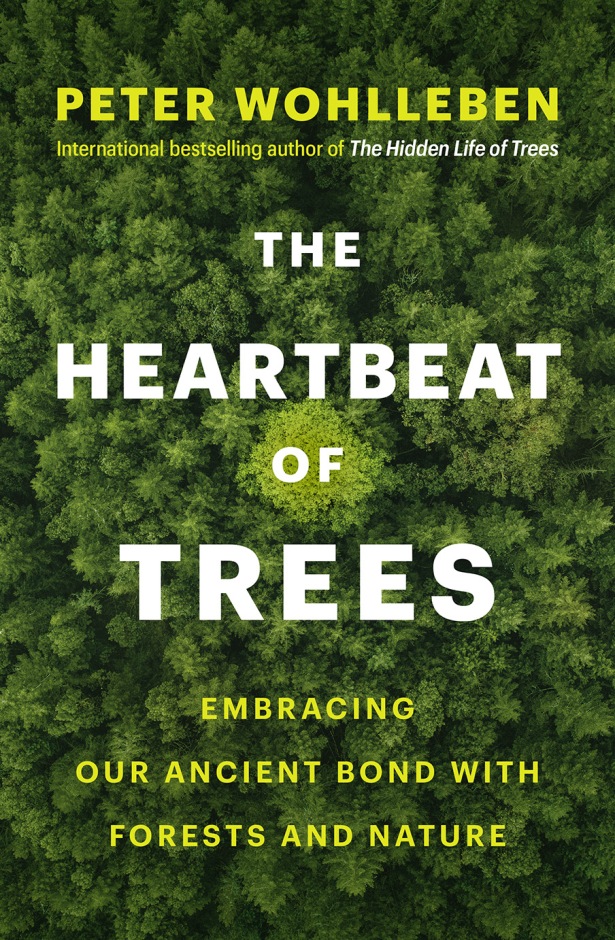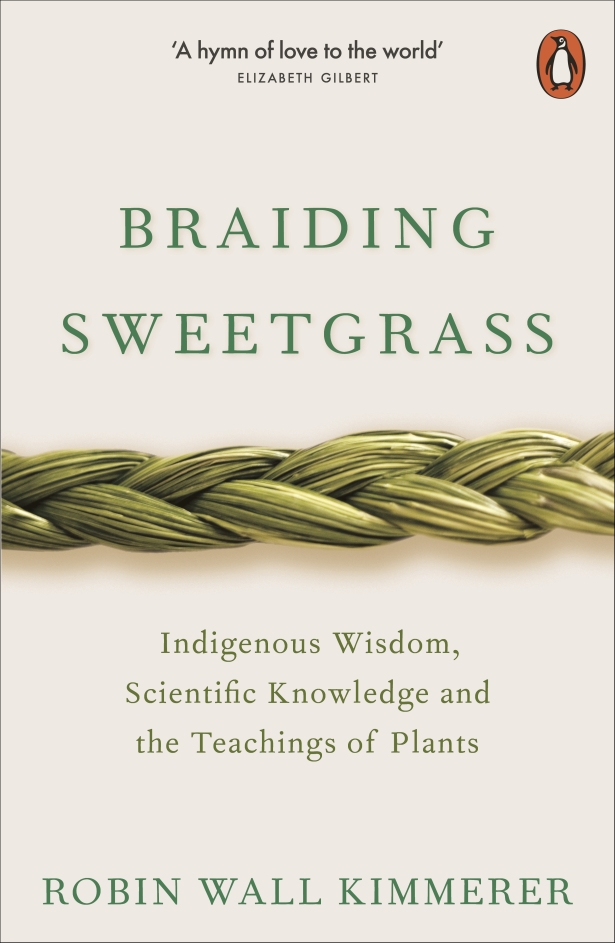Reading is one of my favourite past times and yet, I don’t get to do it nearly as much as I would like. One of the questions I love to ask people is “what are you reading?†because I am always keen to discover books that might open up new ways of looking at the world. This year I am launching the Seasonal Book Club as part of the Ecoscenography Reading Group with the hope of finding a few like-minded people who want to talk about books that have an ecological focus: Essentially, books that help us to engage with and reflect on the more-than-human world and thrilling and tangible ways! I am excited to have Alexandra Lord(Triga Creative) join me in hosting this 2022 series which will be run as a very informal online discussion (BYO wine and cheese!).
The Seasonal Book Club will take place online via the Ecoscenography Facebook Group, starting on the 3rd/4th of February. Please see our full list below. You can purchase most books from any good bookshop or check out your local library for copies. There are also some audiobook versions available for those who would rather listen (there is a free 30-day trial with Audible for new users). Please note: this book club series is open to anyone (you don’t have to be a theatre person to join in!).
Summer/Winter reading (Non-Fiction)
Thursday 4th February 7:30-9pm Toronto time | Friday 5th February 10:30am-12pm Brisbane time
The Enchanted Life by Sharon Blackie:
Blurb: A book of natural wonders, practical guidance and life-changing empowerment, by the author of the word-of-mouth bestseller If Women Rose Rooted. ‘To live an enchanted life is to pick up the pieces of our bruised and battered psyches, and to offer them the nourishment they long for. It is to be challenged, to be awakened, to be gripped and shaken to the core by the extraordinary which lies at the heart of the ordinary. Above all, to live an enchanted life is to fall in love with the world all over again.’ The enchanted life has nothing to do with escapism or magical thinking: it is founded on a vivid sense of belonging to a rich and many-layered world. It is creative, intuitive, imaginative. It thrives on work that has heart and meaning. It loves wild things, but returns to an enchanted home and garden. It respects the instinctive knowledge, ethical living and playfulness, and relishes story and art. Taking the inspiration and wisdom that can be derived from myth, fairy tales and folk culture, this book offers a set of practical and grounded tools for reclaiming enchantment in our lives, giving us a greater sense of meaning and of belonging to the world.
Autumn/Spring (Fiction) *UK/Europe timeframe friendly*
Thursday 3rd March 6:30 – 8am Toronto time | 8:30-10pm Brisbane time | 10:30am -12pm UK time
The Performance by Claire Thomas:
Blurb:Â The false cold of the theatre makes it hard to imagine the heavy wind outside in the real world, the ash air pressing onto the city from the nearby hills where bushfires are taking hold. The house lights lower. The auditorium feels hopeful in the darkness. As bushfires rage outside the city, three women watch a performance of a Beckett play. Margot is a successful professor, preoccupied by her fraught relationship with her ailing husband. Ivy is a philanthropist with a troubled past, distracted by the snoring man beside her. Summer is a young theatre usher, anxious about the safety of her girlfriend in the fire zone.
Summer/Winter (Non-Fiction) — May/June TBC
Fixation: How to Have Stuff without Breaking the Planet by Sandra Goldmark:
Blurb: Our massive, global system of consumption is broken. Our individual relationship with our stuff is broken. In each of our homes, some stuff is broken. And the strain of rampant consumerism and manufacturing is breaking our planet. We need big, systemic changes, from public policy to global economic systems. But we don’t need to wait for them.
Since founding Fixup, a pop-up repair shop that brought her coverage in The New York Times, Salon, New York Public Radio, and more, Sandra Goldmark has become a leader in the movement to demand better “stuff.†She doesn’t just want to help us clear clutter—she aims to move us away from throwaway culture, to teach us to reuse and repurpose more thoughtfully, and to urge companies to produce better stuff. Although her goal is ambitious, the solution to getting there is surprisingly simple and involves all of us: have good stuff, not too much, mostly reclaimed, care for it, and pass it on.
Fixation charts the path to the next frontier in the health, wellness, and environmental movements—learning how to value stewardship over waste. We can choose quality items designed for a long lifecycle, commit to repairing them when they break, and shift our perspective on reuse and “preowned†goods. Together, we can demand that companies get on board. Goldmark shares examples of forward-thinking companies that are thriving by conducting their businesses sustainably and responsibly.
Passionate, wise, and practical, Fixation offers us a new understanding of stuff by building a value chain where good design, reuse, and repair are the status quo.
Spring/Autumn (Non-Fiction) *UK/Europe timeframe friendly*September/October TBC
The Heartbeat of Trees: Embracing Our Ancient Bond With Forests and Nature by Peter Wohlleben:
Blurb: From the New York Times bestselling author of The Hidden Life of Trees comes a powerful return to the forest, where trees have heartbeats and roots are like brains that extend underground. Where the colour green calms us, and the forest sharpens our senses.
In The Heartbeat of Trees, renowned forester Peter Wohlleben draws on new scientific discoveries to show how humans are deeply connected to the natural world. In an era of mobile phone addiction, climate change and urban life, many of us fear we’ve lost our connection to nature, but Wohlleben is convinced that age-old ties linking humans to the forest remain alive and intact.
Drawing on science and cutting-edge research, The Heartbeat of Trees reveals the profound interactions humans can have with nature, exploring the language of the forest, the consciousness of plants and the eroding boundary between flora and fauna.
A perfect book to take with you into the woods, The Heartbeat of Trees shares how to see, feel, smell, hear and even taste the forest.
Winter/Summer (Non-Fiction) — November/December TBC
Braiding Sweetgrass: Indigenous Wisdom, Scientific Knowledge and the Teachings of Plants by Robin Wall Kimmerer:
Blurb: As a botanist, Robin Wall Kimmerer has been trained to ask questions of nature with the tools of science. As a member of the Citizen Potawatomi Nation, she embraces the notion that plants and animals are our oldest teachers. In Braiding Sweetgrass, Kimmerer brings these two lenses of knowledge together to take us on “a journey that is every bit as mythic as it is scientific, as sacred as it is historical, as clever as it is wise†(Elizabeth Gilbert).
Drawing on her life as an indigenous scientist, a mother, and a woman, Kimmerer shows how other living beings-asters and goldenrod, strawberries and squash, salamanders, algae, and sweetgrass-offer us gifts and lessons, even if we’ve forgotten how to hear their voices. In a rich braid of reflections that range from the creation of Turtle Island to the forces that threaten its flourishing today, she circles toward a central argument: that the awakening of a wider ecological consciousness requires the acknowledgment and celebration of our reciprocal relationship with the rest of the living world. For only when we can hear the languages of other beings will we be capable of understanding the generosity of the earth, and learn to give our own gifts in return.
The post, What are you reading? Introducing the Seasonal Book Club, appeared first on Ecoscenography.
———-
Ecoscenography.com has been instigated by designer Tanja Beer – a PhD candidate at the University of Melbourne, Australia, investigating the application of ecological design principles to theatre.
Tanja Beer is a researcher and practitioner in ecological design for performance and the creator of The Living Stage – an ecoscenographic work that combines stage design, permaculture and community engagement to create recyclable, biodegradable and edible performance spaces. Tanja has more than 15 years professional experience, including creating over 50 designs for a variety of theatre companies and festivals in Australia (Sydney Opera House, Melbourne International Arts Festival, Queensland Theatre Company, Melbourne Theatre Company, Arts Centre) and overseas (including projects in Vienna, London, Cardiff and Tokyo).
Since 2011, Tanja has been investigating sustainable practices in the theatre. International projects have included a 2011 Asialink Residency (Australia Council for the Arts) with the Tokyo Institute of Technology and a residency with the Royal Central School of Speech and Drama (London) funded by a Norman Macgeorge Scholarship from the University of Melbourne. In 2013, Tanja worked as “activist-in-residence†at Julie’s Bicycle (London), and featured her work at the 2013 World Stage Design Congress (Cardiff)
Tanja has a Masters in Stage Design (KUG, Austria), a Graduate Diploma in Performance Making (VCA, Australia) and is currently a PhD candidate at the University of Melbourne where she also teaches subjects in Design Research, Scenography and Climate Change. A passionate teacher and facilitator, Tanja has been invited as a guest lecturer and speaker at performing arts schools and events in Australia, Canada, the USA and UK. Her design work has been featured in The Age and The Guardian and can be viewed at www.tanjabeer.com
Powered by WPeMatico







